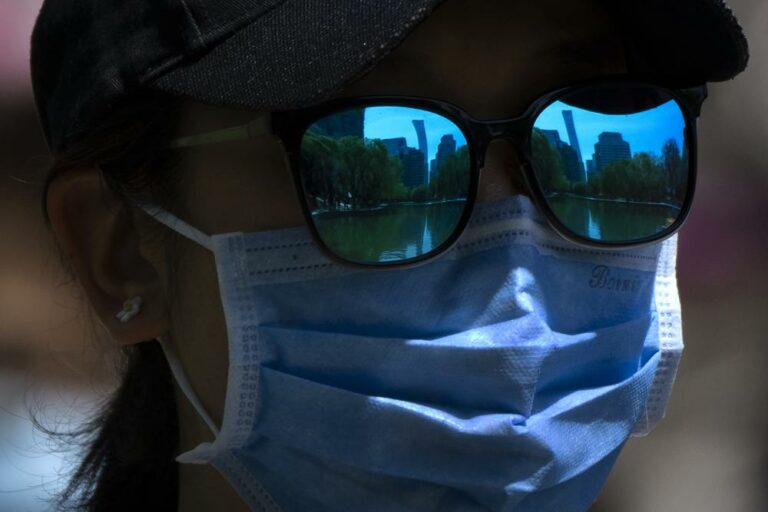OTC Cough and Cold Products: Not For Infants and Children Under 2 Years of Age
Questions and Answers for Consumers
Q. What is FDA recommending about use of over-the-counter cough and cold products for infants and children under 2 years of age?
A. FDA strongly recommends that over-the-counter (OTC) cough and cold products should not be used for infants and children under 2 years of age because serious and potentially life-threatening side effects could occur.
Q. What are these side effects?
A. There are a wide variety of serious adverse events reported with cough and cold products. They include death, convulsions, rapid heart rates, and decreased levels of consciousness.
Q. What ingredients may cause these effects, and what should I look for on the label to tell if these ingredients are present in an OTC product?
A: OTC cough and cold products include these ingredients: decongestants (for unclogging a stuffy nose), expectorants (for loosening mucus so that it can be coughed up), antihistamines (for sneezing and runny nose), and antitussives (for quieting coughs). The terms on the label include “nasal decongestants”, “cough suppressants”, “expectorants” and “antihistamines.”
Q. How did FDA arrive at its decision to issue these recommendations?
A. FDA’s recommendation is based on the review of reports the agency has received about serious side effects, as well as a review of information presented at a joint Nonprescription Drugs and Pediatric Advisory Committee meeting on Oct.18-19, 2007. FDA has determined that OTC cough and cold medicines, which treat symptoms and not the underlying condition, have not been shown to be safe or effective in infants and children under 2.
Q. Not effective? Does that mean they don’t work?
A. FDA does not have any data to support that these products work in children less than 2 years of age.
Q. My child has allergies. Does this alert affect the medicines for my child?
A. This advisory relates only to the use of OTC products for the treatment of cough and cold.
Q. What should parents do if infants and children under 2 years of age experience cough and cold symptoms?
A. A cold is a respiratory illness that is usually self-limited and lasts about a week. Cold symptoms typically include sneezing, coughing, runny or stuffy nose, and sore throat. Children may also experience a fever. Most of the time, a cold will go away by itself. If you are concerned about making your child feel more comfortable, talk with your doctor about what approaches to take. Your doctor may recommend drinking plenty of fluids to help loosen mucus and keep children hydrated, and using saline nasal drops and gently suctioning mucus from the nose with a bulb syringe. Your doctor may also recommend fever reducers such as acetaminophen or ibuprofen. If your child’s cold symptoms do not improve or get worse, contact your doctor. A persistent cough may signal a more serious condition such as bronchitis or asthma.
Q. Are particular products being recalled?
A. No. This public health advisory does not mean that products are being recalled. In October 2007, the Consumer Healthcare Products Association (CHPA), on behalf of leading manufacturers of OTC cough and cold medicines, announced voluntary market withdrawals of OTC products for infants and children under 2 years of age. FDA strongly supports the actions taken by many manufacturers to voluntarily withdraw cough and cold medicines that were being marketed for infants.
Q. Is FDA making a recommendation about whether cough and cold products should be used in age groups other than infants and children under 2 years of age at this time?
A. No. This public health advisory does not include FDA’s final recommendation about use of cough and cold medicines in children ages 2 through 11 years. FDA’s review of the data for these age groups is continuing. The agency is committed to making a timely and comprehensive review of the safety of OTC cough and cold medicines in children. FDA plans to issue its recommendations on use of the products in children ages 2 to 11 as soon as the review is complete.
Q. While FDA is completing its review for children ages 2 through 11, what should parents of children in this age group know about using cough and cold products?
A. Giving too much cough and cold medicine can be dangerous. OTC cough and cold products can be harmful if more than the recommended amount is used, if they are given too often, or if more than one product containing the same active ingredient is being used. Parents need to be aware that many OTC cough and cold products contain multiple ingredients (for nasal congestion, cough, and fever). Giving more than one product could result in an overdose. There are many products that have similar names, so it is critical to identify the active ingredient(s) in the product, select the proper medicine, and use the correct dose. Reading the DRUG FACTS section of the label will help caretakers learn about what active ingredients are in the products. Also, children should not be given medicines that are packaged and made for adults.
Pending completion of its review, FDA recommends these steps for consumers who use OTC cough and cold products in children 2 years of age and older:
Check the “active ingredients” section of the DRUG FACTS label.
Be very careful if you are giving more than one OTC cough and cold medicine to a child. If you use two medicines that have the same or similar “active ingredients,” a child could get too much of an ingredient which may hurt your child.
Carefully follow the directions in the DRUG FACTS label.
Only use the measuring spoons or cups that come with the medicine or those made specially for measuring drugs.
Choose OTC cough and cold medicines with childproof safety caps, when available, and store the medicines out of reach of children.
Understand that OTC cough and cold medicines do not cure or shorten the duration of the common cold.
Do not use these products to sedate your child or make children sleepy.
Call a physician, pharmacist, or other healthcare professional if you have any questions about using cough or cold medicines in children 2 years of age and older.
(YWN Desk – NYC)











One Response
Why not consider a Natural Alternative, as a preventative for a young child feeling fluish. Nutionists, Nuturapaths are a schooled in wholistic Health. They can (with Hashem`s help) assist parents to make informed decisions to straighten their immune system.